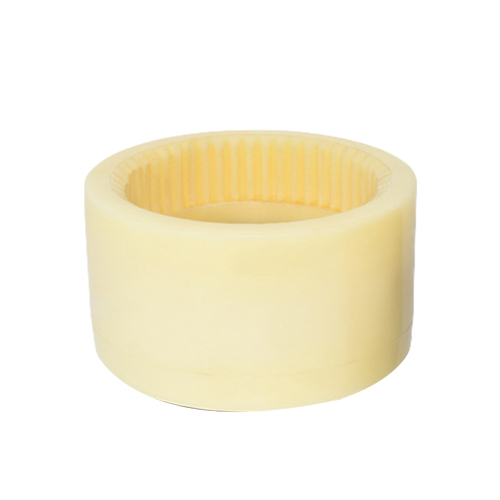Products Description
Nylon JacketIt Is A Wear-resistant Transmission Accessory Based On Polyamide (nylon), Which Is Commonly Used In Equipment Such As Couplings, Bearing Seats, Gearboxes, Etc., And Is Formed By Injection Molding Or Machining. Its Structure Is Mostly Cylindrical, And The Inner Hole Can Be Machined With Keyways, Threads, Or Steps, Suitable For Different Shaft Diameters. The Outer Wall Is Often Designed With Anti Slip Patterns Or Grooves To Enhance The Stability Of The Connection With The Mating Parts.
In Terms Of Material, Commonly Used Are PA6, PA66, Or Reinforced Nylon (with Added Glass Fiber), Which Have Self-lubricating Properties, A Friction Coefficient Of Only 0.1-0.3, Wear Resistance That Is 3-5 Times Better Than Copper Sleeves, And A Weight That Is More Than 40% Lighter Than Metal Sleeves. The Working Temperature Range Is -40 ℃~120 ℃, With A Short-term Resistance Of 150 ℃ And A Compressive Strength Of 60~90MPa, Suitable For Sliding Or Rotating Friction Scenarios With Medium And Low Loads.
In Couplings, Nylon Sleeves Are Often Used As Elastic Buffers Or Shaft Sleeves, Such As In Elastic Column Pin Couplings To Protect The Contact Area Between The Column Pin And The Half Coupling, Reducing Metal Wear; In Bearing Assembly, It Can Be Used As An Intermediate Liner To Compensate For Clearance And Reduce Noise. Its Advantage Is That It Does Not Require Frequent Lubrication And Has Good Chemical Corrosion Resistance (except For Strong Acids), But It Is Prone To Creep Under Long-term Heavy Load. During Installation, It Is Necessary To Control The Interference Fit To Avoid Jamming Caused By Temperature Changes, Which Is An Economical Alternative To Metal Sleeves In Mechanical Transmission.







